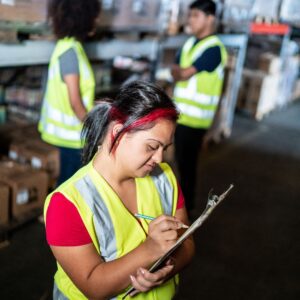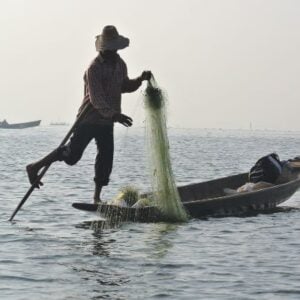Tens of thousands of workers across Indonesia have taken to the streets, demanding fair wages, safer working conditions, and stronger labour rights. The nationwide protests have drawn attention to growing concerns about modern slavery, as weak labour protections continue to leave millions vulnerable to exploitation.
At the heart of public anger is the controversial Omnibus Law, introduced to attract investment by simplifying regulations. Instead, workers argue that it has reduced job security, lowered wages, and weakened their rights. Frustration has been further fuelled by reports that members of parliament receive a monthly housing allowance of 50 million rupiah (around US$3,000), while the average Indonesian earns less than US$200 per month. This glaring inequality has become a symbol of the broader injustice faced by the country’s workforce.
According to the latest Global Slavery Index, an estimated 1.8 million people in Indonesia are living in conditions of modern slavery, placing the country among the ten worst-affected in the Asia-Pacific region. Forced labour is widespread across key sectors such as fishing, palm oil production, logging, construction, mining, manufacturing, and domestic work, where women and girls are particularly vulnerable. In the palm oil industry, workers face debt bondage, withheld wages, and harassment, while in the fishing sector, declining fish stocks have led to exploitative practices, including severe salary deductions and inhumane conditions at sea. Indonesian workers are also trafficked overseas, many ending up in domestic work, fishing fleets, or even online scam centres.
While the Indonesian government has made some progress, significant gaps remain. Plans to introduce mandatory human rights due diligence legislation are underway, but the law is not expected to take effect before 2028. Efforts to identify and support survivors of modern slavery are still limited, and forced labour in supply chains continues to be overlooked. The 2019 Law on Protection of Migrant Workers has yet to be fully implemented, with survivors in shelters reportedly facing restrictions on their freedom of movement. The National Action Plan on trafficking (2020–2024) has been finalised but remains underfunded, and weak labour inspections allow many abuses to go unchecked. Allegations of official complicity in forced labour are also not being adequately investigated.
To address these challenges, Indonesia must take stronger, more immediate action. This includes fully funding and implementing its anti-trafficking initiatives, improving survivor support systems, enforcing labour protections in high-risk industries, and tackling corruption linked to exploitation. The government must also criminalise all forms of modern slavery, including forced labour and child sexual exploitation, while ensuring that both public and private sectors comply with human rights due diligence standards.
As protests continue to echo across the nation, Indonesia stands at a critical turning point. The movement has exposed deep structural inequalities and the urgent need for reform. By taking decisive action now, Indonesia has the chance to not only protect its workers but also reaffirm its commitment to justice, equality, and human dignity.







